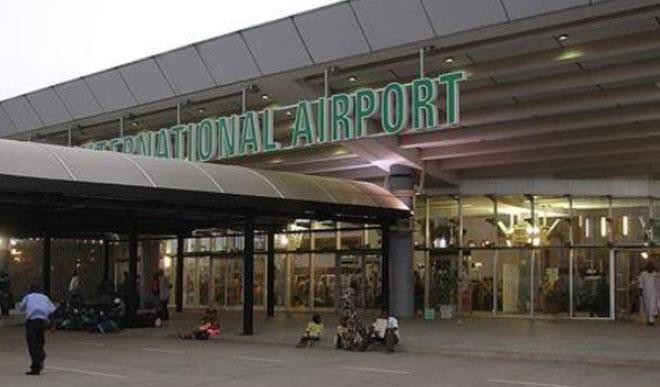Foreign travelers planning to reach the Nigerian capital, Abuja, next month have two choices: make a 15-hour drive from the southern commercial hub of Lagos or fly to the northern city of Kaduna and ride through an area plagued by kidnappers and gunmen.
The authorities plan to close Abuja’s airport for six weeks on March 8 to repair potholes on the 35-year-old runway that have damaged planes’ landing gear. British Airways, Lufthansa, Air France and South African Airways declined the government’s suggestion to divert their flights to Kaduna, while Ethiopian Airlines says it will fly there. Kaduna’s attractiveness dimmed on Feb. 23 when two German archaeologists were kidnapped and released three days later in a village off the 234-kilometer (145 mile) road to the capital.
“This route passes through insecure territory where the convergence by criminal actors from cattle rustlers to bandits and militants has precipitated a surge in kidnappings,” said Michael Clyne, an analyst at the Lagos-based security consultant group DC Premium Logistic and Solutions Ltd. Victims of the abductions included two former ministers, a Sierra Leonean diplomat and two bankers, he said.
The closure of the airport in Abuja, which handles 3 million passengers a year, will be another shock to a country facing its worst economic contraction in a quarter century. The drop in oil prices has slashed its main revenue earner, while the naira currency has weakened 35 percent against the dollar since June, the third-worst performance globally. President Muhammadu Buhari, 74, has been receiving treatment in London since Jan. 19 for an unspecified medical condition, with no date set for his return.
Deal Makers
Abuja is a deal-making center, frequented by executives from mobile-phone companies, retailers and energy firms including Royal Dutch Shell Plc, Exxon Mobil Corp. and Chevron Corp. that are pumping crude with the state-owned Nigerian National Petroleum Corp. in Africa’s second-biggest oil producer.
Already the airport shutdown prompted the postponement of the Nigeria International Trade and Investment Conference on non-oil investment until June.
“We have talked to several participants and embassies, and it seems no one is interested in going to Kaduna,” Sand Mba Kalu, who’s helping to organize the conference for Africa International Trade and Development Trust, said on Monday.
Airport Capacity
Besides the danger of the Kaduna route, its airport probably doesn’t have the capacity to handle the Abuja traffic. It had 12 flights in December 2015 compared with 812 in Abuja, Lagos-based research house SBM Intelligence said in a Feb. 24 note, citing the latest available figures from Nigeria’s airports authority.
Aviation State Minister Hadi Sirika said the government is expanding Kaduna airport’s capacity to handle more traffic.
Most airlines had little alternative but to suspend their flights, said Joachim Vermooten, an independent aviation analyst in Pretoria, South Africa.
“It’s very hard to transfer the whole airline supply-chain that includes ticketing, etc to Kaduna just for a short while,” he said by phone.
The runway at Abuja’s Nnamdi Azikiwe International Airport was built in 1982 with a 20-year lifespan and has deteriorated to the extent that it has become a safety hazard and has to be completely overhauled, according to Minister Sirika.
Construction company Julius Berger Nigeria Plc won a contract in 2010 that was then worth about $425 million to build a 4.6-kilometer second runway, but it was canceled after lawmakers said it was too expensive. It also won the bid to carry out the current repairs at a cost of 5.8 billion naira ($18.4 million), according to Sirika.
Economic Impact
Until the work is finished, Ben Okechukwu says he’s planning to shut his clothes shop in the capital because he won’t be able to make his usual monthly trip to Turkey to buy suits, shirts and ties.
“I plan to shift to Lagos,” he said in an interview. “The biggest problem is we are not sure how long the airport will be closed. If it’s six weeks it’s OK, but if it goes for months, then it messes up the whole year.”
Nigeria’s airline industry was already reeling from shortages of jet fuel and foreign-currency as revenue from crude oil fell and the value of the naira tumbled, leaving airlines with higher maintenance bills and difficulty in repatriating ticket sales. The government was forced to take over Nigeria’s biggest airline, Arik Air, this month.
The airport closure will make the situation worse, said Linden Birns, managing director of Cape Town, South Africa-based aviation consultancy Plane Talking.
It’s not only a “blow for both domestic and foreign airlines who will lose revenues, but also for the Nigerian economy,” he said.
Bloomberg

